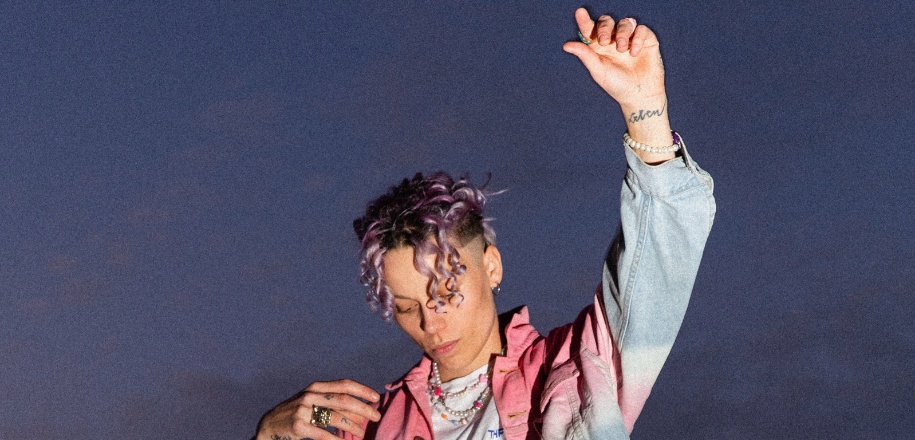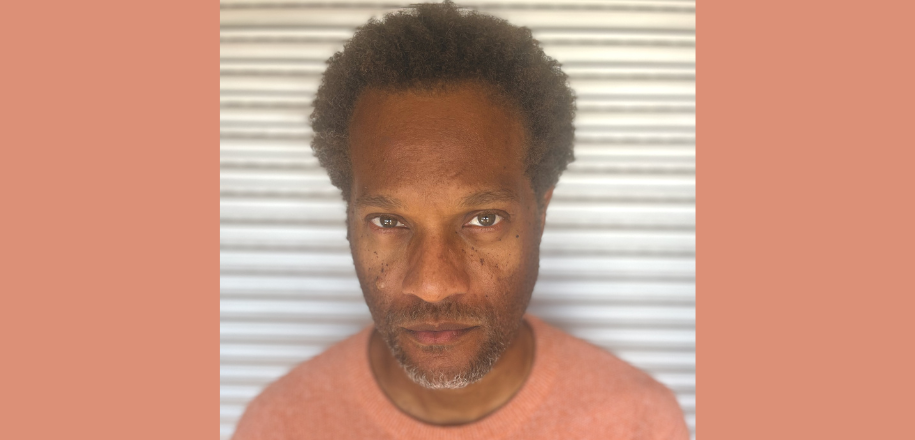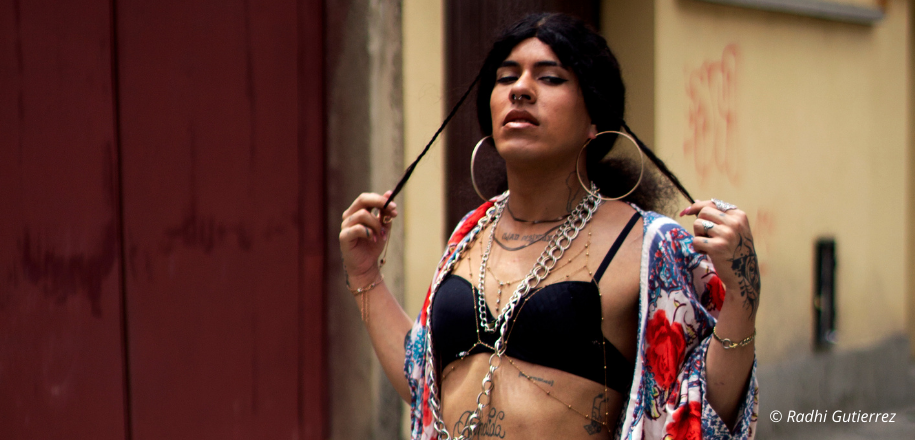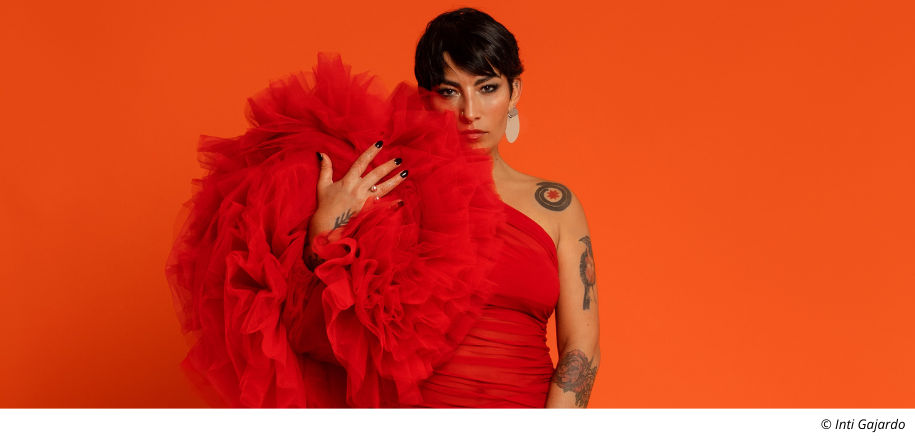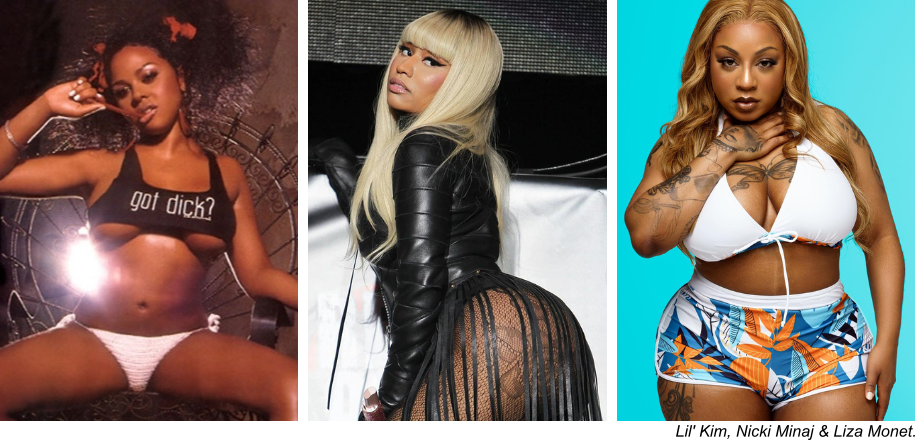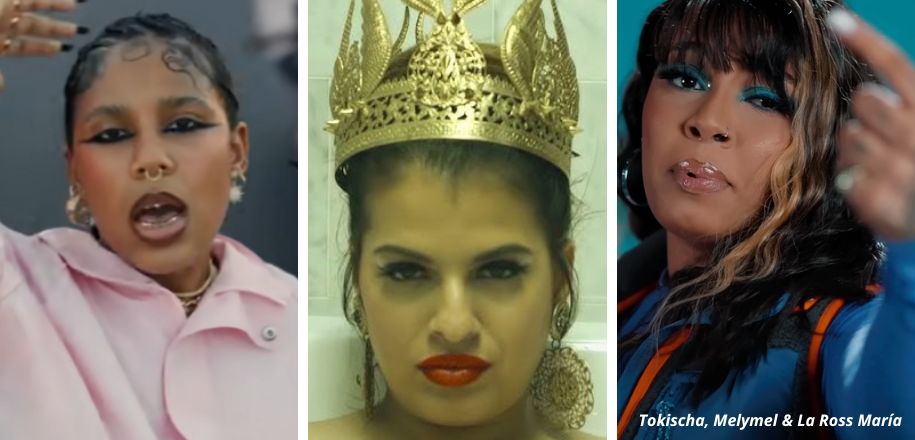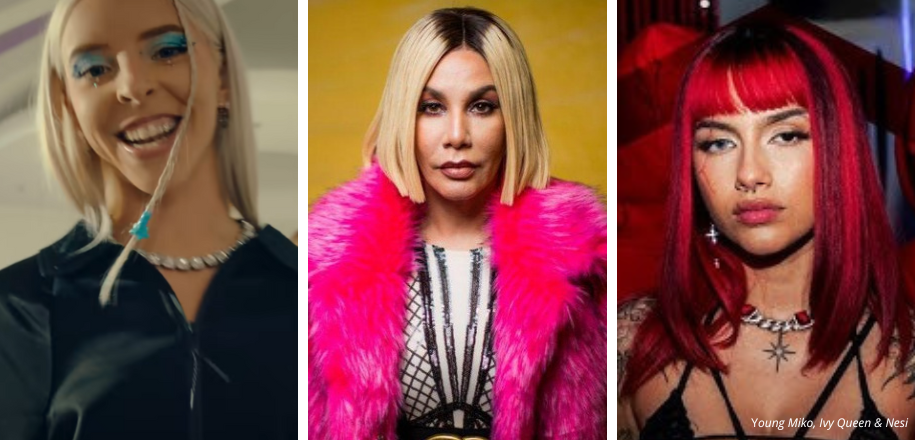Born in Francfort, Germany, Alice Dee grew up with three siblings. Now Berlin-based, they identify as a “non-binary rapper, who makes dark, soulful and danceable music.” Alice told us about their journey in rap, why it is important for them to collaborate with other queer artists and their upcoming projects.
You started writing at the age of 13. Was it the result of a long process or did something happen that made you take up your pen?
I started writing when I felt lost and like I didn’t belong to anywhere. Writing and listening to music was my safe space, where I could express myself and my feelings.
Who were your role models while growing up?
My role models were basically people like musicians, rappers, writers, activists… People that inspired me, who did things differently, something no one has ever done before them, people who changed something… Like Nirvana, Aphex Twin, Amy Winehouse, Toni Morrison… But also friends who were creative, active, and on a mission, pushing the status quo.
How and when were you introduced to hip hop for the first time?
I don’t remember exactly how and when I was introduced to hip hop. But I guess it was when I was 11. Back then, I was dancing to Eminem, Eve or Mary J. Blige’s songs. Then, a bit later, I discovered German rap music and mainly listened to street rap.
How did you start rapping?
In the beginning, I didn’t really rap… I was writing lyrics and eventually showed it to my friends. I wrote battle tracks against people we didn’t like, and it made my friends laugh, which was cool. But that was only baby steps.
Real rapping, like using my voice and learning to vocalize, recording myself and all the musical aspects came when I was around 20. I started recording myself with my Mp3 player and showed it to a friend who took me to another friend where I did my first recording, which was behind a mattress, like original home recording style. We showed the track around and everyone liked it and I felt like I was good at this.
So, I continued. One thing came to the next. I moved to Berlin because where I lived, the rap scene was so small. In Berlin, I recorded my first mixtape in 2013. And never stopped since then.
Which of your songs are you most proud of and why?
That’s hard to answer. But I think the first song I was really really proud of, where I felt like “this is the sound I wanna do”, was “Freitag Nacht”, released in 2020.
I was pretty fucked up before because I had arguments with dickhead dude producers and then I was like, fuck this… I found the beat online, recorded myself with a Shure SM7B, sent it over to a guy I didn’t know, and I was able to tell him precisely how I wanted the mix to sound like. To have the knowledge and vocabulary to express myself musically made me realize “ok, I got this”.
Besides, the flow, the songwriting, the chorus, delivery and my confidence, everything was on a level that I was working very hard for over years. On top of this, the video, the cover, I did everything myself and with my bestie Yaso G and a video maker friend.
It was first time the look and sound were on fleek. And I proved myself that I would no longer waste my energy with playing small or feeding dickhead people’s ego.
Your music ranges from boom bap to grime, drill and trap. How would
you describe your musical identity?
I’m a gender-bender. I like exploring. The core of it all is a dominant bass, hi-hats, electronic sounds and small details. It’s dark, it’s soulful and you can dance.
Your songs address societal issues, such as white privilege, queer
empowerment, and social inequality. Do you see yourself as an activist?
It’s tricky, yes and no. No, because I’m a rapper and musician first. I see a responsibility in what I’m doing because I’m speaking to people, and I like to empower them. So that makes it a yes, maybe cause that’s what activists do?
What makes a good beat to you and how do you pick your beats?
A good beat has a rhythm that moves me and a soulful melody or vibe that affects me. I pick my beats mostly online and do research a couple of times a week.
What is your relationship to Berlin?
I don’t originally come from Berlin but it’s the first place I would call home. I love this city because normality here means something else.
Is it important to you to connect with other queer artists?
Yeah sure. I love collaborating, I believe in unity more than I believe in ego. Especially when you are a minority, it’s important to break jealousy and stop seeing each other as competition. I think it’s more important to connect and join forces and learn from one another.
Is rap your full-time activity today and do you make a living from it?
Unfortunately not yet, but I’m working on it. I work as a social worker and I do rap workshops to pay the bills and finance my music.
What are your upcoming projects?
At the moment, I’m working on features. Once, I’m done, then I’ll start working on my next EP.
What do you think about Madame Rap? What should be changed or improved?
Big up to Madame Rap. Every day there’s an upload of other badass MCs I’ve never heard before. It’s a huge variety of skills and styles of female and queer people from all over the world. Massive respect for doing this and giving all these great performers a platform.
Find Alice Dee on Instagram, Facebook, YouTube and their website.
© Ksenia Les

